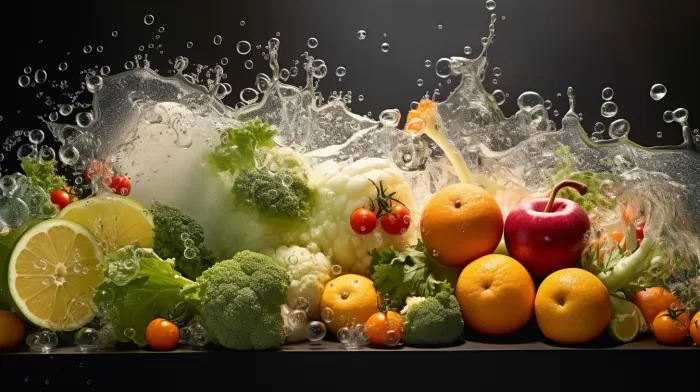If you’ve ever suffered from a stomach bug or gastroenteritis, you know how uncomfortable and debilitating it can be. You may also know that contaminated water is a common source of the illness. However, what you might not realize is that contaminated water used in traditional agriculture practices may be introducing dangerous viruses, like human norovirus (hNoV), onto the fruits and vegetables we eat. This highlights yet another reason to choose organic food.
Pesticides and Contaminated Water
Pesticide use is an issue that continues to spark heated debate. Proponents claim these chemicals are essential for crop yield and food production. Critics, on the other hand, state that their potential damage to the environment and human health far outweigh any benefits they provide.
In a recent study examining the relationship between pesticides and water contamination, researchers found that the water used to dilute pesticides applied to produce can transfer hNoV, better known as the stomach flu, to food. The stomach flu can cause symptoms like nausea, vomiting, stomach pain, and diarrhea.
The study analyzed eight different pesticides, each diluted with hNoV-contaminated water. After combining the two elements, researchers checked for the presence of the virus in the samples. They discovered that the infectivity of the norovirus was unchanged when added to the pesticide samples. This means that the pesticides did not reduce the risks associated with the contaminated water.
This finding has significant implications, as it suggests that applying pesticides to fresh produce may not only be a chemical hazard but also a potential microbiological risk factor. Both of these factors can have serious consequences for public health.
The Organic Advantage
Organic farming practices can help reduce the risk of viral contamination from pesticides and contaminated water. One of the key principles of organic agriculture is the avoidance of synthetic chemicals, which includes pesticides. Instead, organic farmers focus on promoting biodiversity, nurturing the soil, and encouraging natural processes to control pests and diseases.
In addition to their reduced reliance on potentially harmful chemicals, organic farms are also more likely to use clean water sources for their irrigation systems. This can further help to minimize the risk of transferring viruses like hNoV to the produce they grow.
Choosing organic food, which is grown without the use of synthetic pesticides and chemical fertilizers, can help protect your health and the environment from the dangers posed by contaminated water and pesticide use.
Tips for Reducing Your Exposure
To minimize your risk of exposure to hNoV and other health hazards associated with pesticide use and contaminated water, consider these tips:
- Choose organic foods: Opt for organically-grown produce whenever possible. Organic farms are required to follow strict guidelines on water and pesticide use, helping to reduce the risk of contamination.
-
Wash your fruits and vegetables: Whether you’re eating organically-grown or conventionally-grown produce, always wash your fruits and vegetables before consuming them. Running water over the surface can help remove some contaminants, while soaking in a vinegar and water solution can provide a more thorough cleaning.
-
Peel and cook your produce: If you’re concerned about potential contamination, consider peeling and cooking your produce. This can help to further remove or inactivate any viruses or chemicals that might be present.
-
Support sustainable agriculture: Buying organic foods supports farmers and agriculture systems that prioritize the health of the environment and consumers. By choosing these products, you are helping to encourage the growth of healthier, less contaminated food production systems.
By being aware of the potential risks associated with pesticides and contaminated water, and by taking steps to reduce your exposure, you can help protect your own health as well as the environment. Choosing organic foods, washing your produce, and supporting sustainable agriculture are all important ways to minimize these dangers and promote a healthier food system for all.



